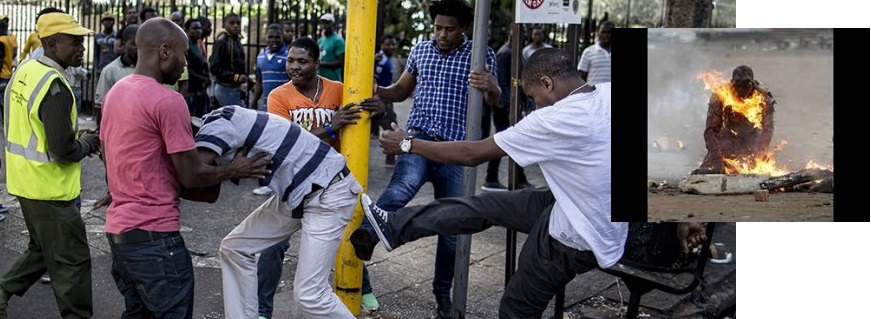The black ANC government repeatedly vows, especially during election campaigns, to create jobs. But it has not been able to deliver. Only open borders, naked corruption and almost no accountability have thrived since 1994.
For the first time the ANC’s new manifesto for the May 8 elections included the party’s commitment to getting tough on the flood of undocumented immigrants.
The party says it will “take tough measures against undocumented immigrants involved in criminal activities in the country or in cross-border crimes, including those involved in illegal trading and selling adulterated food in townships and villages”.
At his speech at Moses Mabhida Stadium in January, President Cyril Ramaphosa spoke about the need for “effective border management”.
The International Monetary Fund in April lowered South Africa’s projected GDP growth rate for 2019 from 1,2 percent, citing policy uncertainty over land grabs, high levels of corruption and recurrent electricity blackouts, harming investor confidence.
The government’s target is to cut unemployment by half, to about 14 percent by 2020, but this is “unlikely to occur”, says the World Bank in a 2018 report.
The massive unemployment rate has fuelled apathy among voters, with the electoral commission noting a 47 percent drop in registered voters aged 18 and 19. Some two-thirds of the nine million eligible voters who did not bother to register are under 30 years old.
With lower standards of admission, access to higher education has increased, with the number of graduates from public universities more than doubling from 92 874 in 2000 to 203 076 in 2016.
Despite that, new research from think tank Eunomix Business & Economics showed that South Africa endured one of the worst declines over the past 12 years for a country not at war.
On a range of social, economic, and governance measures, South Africa deteriorated more than any other nation not involved in an international or civil conflict, it pointed out. Only conflict-torn countries such as Mali, Ukraine, and Venezuela have performed worse in the past decade than South Africa, said Eunomix.
An index of security, governance, prosperity, and welfare indicators showed South Africa slumped to 88th out of 178 nations last year from 31st in 2006. The think tank blamed the past nine years of worsening corruption and policy paralysis.
Ramaphosa, who faces his first national election May 8, faces “the strongest likelihood of him being a one-term president,” said the head of Eunomix, Claude Baissac.
Baissac told Bloomberg: “He is starting with a very weak economy, the weakest of any president since Mandela. He is also starting with a fairly weak hand from a political standpoint.” Ramaphosa has been promoting land grab while Mandela had inherited a thriving economy from the former Apartheid government.
Agriculture in the country has suffered a shock after Ramaphosa threatened to confiscate white land.
“The developmental state project has failed. South Africa is now a fragile state, expected to continue to weaken,” Eunomix said. “South Africa’s state performance peaked in 2007, that year its economy and governance were at their best. Since then the state has experienced continuous decline in all core indicators of performance.”
















